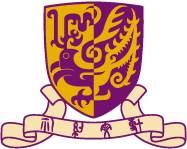Identifying the role of tourism in the process of natural disaster recovery: Comparison between earthquake recovery in Kumamoto Prefecture and Hokkaido Prefecture
Prof. CHAN Chung Shing (Johnson)
The 2018 Hokkaido earthquake in Japan had caused infrastructural damage and tourism disruption within a natural hazard-prone country. This research advances the theoretical foundation and development of natural disaster management through a series of in-depth interviews with the local tourism stakeholders on the investigation of how the role of tourism across the pre-to-post earthquake period is considered by the stakeholders. These local tourism stakeholders have performed or expected a range of actions related to the disaster management process and contributed to the destination resilience. The qualitative analysis discovers, firstly, the multi-functionality of tourism resources, spaces and industries for disaster preparation; secondly, the evacuation and emergency arrangements during the prodromal and emergency phases; and moreover, more possibilities of restoring the affected destination to a state of long-term (re)development during the post-disaster phases. Information and communication barriers are the major difficulties to be tackled for disaster preparedness. Product creation, image improvement, local knowledge enrichment, and more importantly, people-to-people and people-to-place connections, all contribute to the result of sustainable tourism development. From the destination resilience perspective, collaboration is the key determinant to an improved Hokkaido region. This factor could integrate stakeholders through shared local values, experiences and memories of disaster risk communication and strategies for preparedness. This research is funded by the Sumitomo Foundation, Fiscal 2018 Grant for Japan-related Research Projects (Project code: 188014).
Figure 2a – Interviews with local tourism stakeholders

